#united states politics and government
Link
The proposal would add requirements to the application process for grants from the federal Charter Schools Program, which has doled out billions of dollars over nearly 30 years to help open new charter schools or expand existing ones. It sets tighter restrictions on the schools’ relationships with for-profit entities and encourages more collaboration between charters and the districts they operate in.
The most controversial part of the plan would require grant applicants to prove demand and community support for their schools, examine the effect they would have on neighboring district-run schools, and demonstrate that they would not exacerbate segregation.
Proponents of the plan say it is aimed at increasing accountability for the schools, which promised to be engines of innovation and competition that improve district-run schools. But critics say the rules are onerous and out of touch with the reality of how many charter schools operate: autonomously, and as alternatives to traditional public schools.
Leaders across the charter school community have said the new requirements would quell the growth of such schools, which serve 3.6 million students — 69 percent of them students of color and two-thirds from low-income households — and have waiting lists of millions more.
The rules would “dampen interest in applying for federal funds to launch new schools” and “damage individuals who don’t have resources,” said Nina Rees, the president and chief executive of the National Alliance for Public Charter Schools. The new requirements, she said, would be particularly burdensome for applicants the program was intended for: community members, particularly people of color, who run a single school and do not have enough staff to complete the necessary paperwork or gain access to philanthropists to fund their start-ups.
228 notes
·
View notes
Text

#gop hypocrisy#gop stupidity#conservatives#usa politics#texas shooting#gun control now#gun control#guns in america#gun violence#texas school shooting#school shooting in texas#school shooting in America#guns control laws#florida#republicans#us politics#united states politics and government#united states#politics#current events#us news#makeamericagreatagain#donald trump#GOP#best memes
236 notes
·
View notes
Text


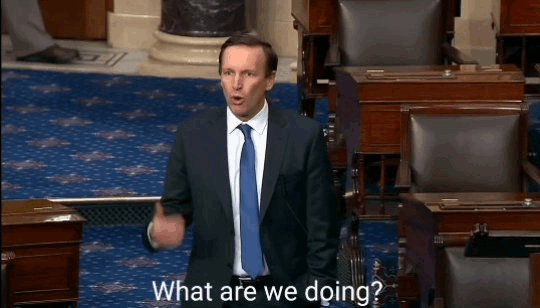

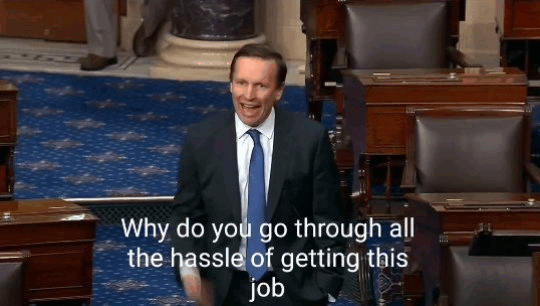
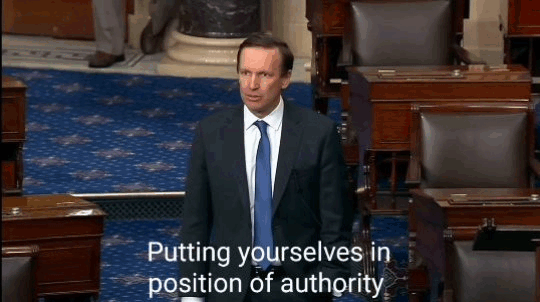


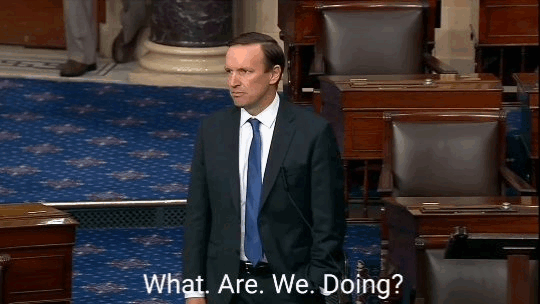
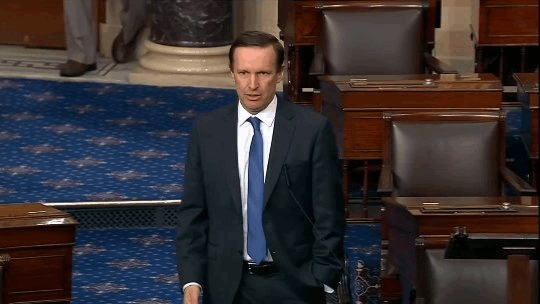
"If not to solve a problem as existential as this. This isn't inevitable, these kids weren't unlucky. This only happens in this country, no where else. No where else do kids go to school thinking they're going to be shot that day...
No where does that happen except here in the United States of America and it is a choice, it is our choice, to let it continue.
What. Are. We. Doing? "
Sen. Chris Murphy pleads with the U.S. Senate for gun control. May 25, 2022
#senator chris murphy#us senate#us gun laws#us gun control#us politics#us gun violence#gun control#gun violence#gun violence tw#news tw#news#american news#american politics#united states#united states politics and government#us govt#call for action#gun safety#enough is fucking enough#american#us news#powerful speech#my posts
168 notes
·
View notes
Text
Be a Patriot and Read "The Patriot". My Daddy was a Lieutenant Colonel and anyone who has had a soldier in their lives should agree with General Milley's Opinions!
7 notes
·
View notes
Link
There are so many serpents that are seeking me and mine now, but we have found our wings and we will not let them catch us.
10 notes
·
View notes
Link

#united states politics and government#Banking#transparent corruption#crisis of legitimacy#congress#SVB#insider trading
5 notes
·
View notes
Link
In the past several months, prosecutors have issued multiple batches of subpoenas in a wide-ranging effort to understand Save America, which was set up shortly after the election as Mr. Trump’s main fund-raising entity. An initial round of subpoenas, which started going out before Mr. Trump declared his candidacy in the 2024 race and Mr. Smith was appointed by Attorney General Merrick B. Garland in November, focused on various Republican officials and vendors that had received payments from Save America.
But more recently, investigators have homed in on the activities of a joint fund-raising committee made up of staff members from the 2020 Trump campaign and the Republican National Committee, among others. Some of the subpoenas have sought documents from around Election Day 2020 up to the present.
Prosecutors have been heavily focused on details of the campaign’s finances, spending and fund-raising, such as who was approving email solicitations that were blasted out to lists of possible small donors and what they knew about the truth of the fraud claims, according to the people familiar with their work. All three areas overlap, and could inform prosecutors’ thinking about whether to proceed with charges in an investigation in which witnesses are still being interviewed.
3 notes
·
View notes
Text

#german immigrant#anti nazi fascism#anti nazi#anti fascism#christian fascism#anti christian fascism#united states politics and government#united states politics#United States government#us government#us politics#fuck nazis#fuck fascism
14 notes
·
View notes
Text
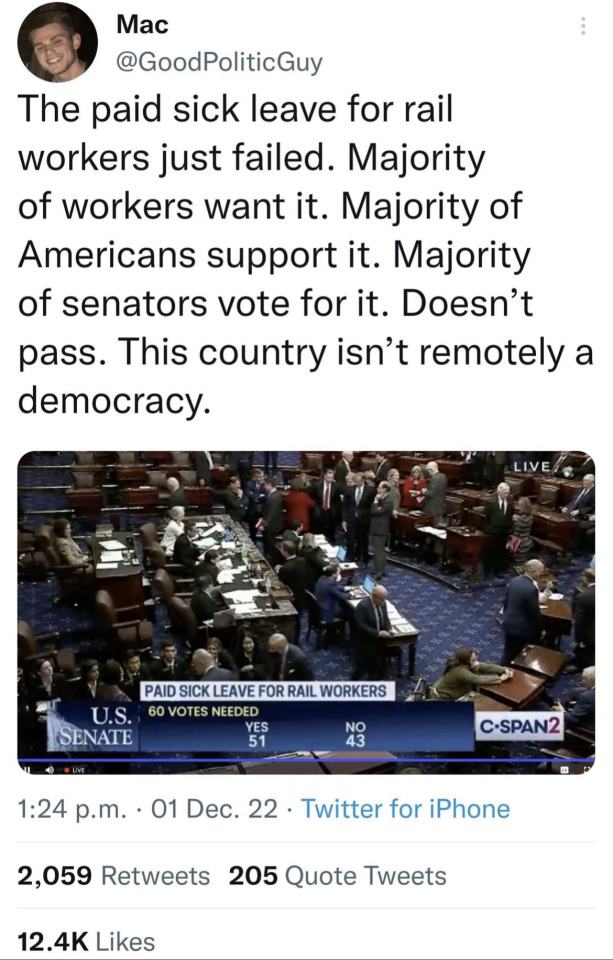
2 notes
·
View notes
Link
ugyanazon a napon, amikor bannon kapott 4 hónapot, mert leszarta az idézést.
smart
2 notes
·
View notes
Link
WASHINGTON — The I.R.S. subjected both President Donald J. Trump’s predecessor and his successor to annual audits of their tax returns once they took office, spokespeople for Barack Obama and President Biden said on Wednesday, intensifying questions about how Mr. Trump escaped such scrutiny until Democrats in the House started inquiring.
Late Tuesday, a House committee revealed that the I.R.S. failed to audit Mr. Trump during his first two years in office despite a rule that states that “the individual tax returns for the president and the vice president are subject to mandatory review.” But its report left unclear whether that lapse reflected general dysfunction or whether Mr. Trump received special treatment.
The disclosure of routine audits of Mr. Obama and Mr. Biden during their time in office suggested that the agency’s treatment of Mr. Trump was an aberration.
“I’m absolutely flabbergasted,” said Nina E. Olson, the national taxpayer advocate from 2001 to 2019. “It’s disturbing. You have a process where you’re auditing the president, you better be auditing the president.”
Reports issued by the Ways and Means Committee, which obtained Mr. Trump’s tax data last month after a yearslong legal battle, said the I.R.S. had initiated its first audit of one of his filings as president in April 2019, the same day that Representative Richard E. Neal, Democrat of Massachusetts and the committee’s chairman, had inquired about the matter.
The I.R.S. has yet to complete that audit, the report added, and the agency started auditing filings covering Mr. Trump’s income while president only after he left office. Even after the agency belatedly started looking, it assigned only a single agent to examine Mr. Trump’s returns, going up against a large team of lawyers and accountants who objected when the I.R.S. added two more people to help.
The committee’s discovery that the I.R.S. flouted its rules is bringing new scrutiny to concerns about potential politicization at the I.R.S. during the Trump administration and spurring calls for the inspector general that oversees the agency to investigate what went wrong. It has also raised questions about why the I.R.S. devoted so few resources to auditing Mr. Trump, who, as a business mogul, had far more complicated tax filings than any previous president.
Under Mr. Trump, the I.R.S. was run for most of 2017 by a commissioner appointed by Mr. Obama, John Koskinen, and — after about 11 months being overseen by an acting head, David J. Kautter — a successor appointed by Mr. Trump, Charles P. Rettig. None ensured that the agency followed its rules requiring presidential audits.
Mr. Rettig, who left in October, said in an email on Wednesday evening that he did not attempt to intervene in Mr. Trump’s audit.
“I am not aware of any taxpayer receiving special treatment at any time, before or during my term as commissioner,” he said. “Further, at no time did I make, nor am I aware that anyone else made, any decision to somehow limit resources available to conduct examinations under the mandatory examination process.”
He added: “I had no involvement in the process of selecting for examination or the conduct of an examination of any return regarding any taxpayer.”
Mr. Koskinen said that his only involvement in Mr. Trump’s tax returns was working to ensure that they were kept in a secure location.
“The good thing about being commissioner is that you never know who is being audited,” Mr. Koskinen said, adding that it would have been inappropriate to ask about the status of any examination.
Mr. Kautter did not respond to a request for comment.
The committee’s reports left many questions unanswered given that it had little time to act: While Mr. Neal had sought Mr. Trump’s tax records since 2019, Mr. Trump fought that request for nearly four years. The Ways and Means Committee only received access to the information last month, with Republicans set to take control of the House in January.
Spokespeople and associates of several other former presidents over the last three decades either did not respond on Wednesday to queries about whether those presidents had been audited every year they were in office or said they did not recall.
Senator Ron Wyden, Democrat of Oregon and the chairman of the Senate Finance Committee, on Wednesday called the House panel’s findings a “blockbuster” that required further attention.
“The I.R.S. was asleep at the wheel, and the presidential audit program is broken,” he said. “There is no justification for the failure to conduct the required presidential audits until a congressional inquiry was made.”
The Internal Revenue Service has already been the subject of repeated controversy.
The New York Times reported this year that the I.R.S. had initiated particularly invasive audits of two of Mr. Trump’s perceived enemies, the former F.B.I. director James B. Comey and his deputy, Andrew G. McCabe. Mr. Trump also repeatedly told his chief of staff that he wanted his perceived rivals, including those two, to face tax investigations.
Despite the low odds of both being singled out, an inspector general’s report concluded that both had been randomly selected for the initial pools from which the agency drew to carry out the examinations. But it is unclear how the I.R.S. made final selections from those pools.
In 2019, Mr. Trump raised eyebrows by telling Senator Mitch McConnell, the majority leader, to prioritize a confirmation vote for a longtime associate, Michael J. Desmond, as general counsel of the I.R.S. over the nomination of William P. Barr as attorney general. Mr. Desmond had advised a subsidiary of the Trump Organization and worked with two of its tax lawyers.
And in 2018, Mr. Trump appointed as commissioner Mr. Rettig, who had written a Forbes column in 2016 defending Mr. Trump’s refusal to release his taxes as a candidate and portrayed the I.R.S. as fully engaged in auditing very wealthy people.
“Teams of sophisticated tax advisers were likely engaged throughout Trump’s career to assure the absence of any ‘bombshell’ within the returns,” Mr. Rettig wrote. “His returns might actually be somewhat unremarkable but for the fact they are the returns of Donald Trump.”
In fact, the few glimpses of Mr. Trump’s taxes have shown much to talk about. The Trump Organization was convicted of a tax fraud scheme this month. The New York attorney general has sued Mr. Trump and three of his children, accusing them of fraudulently overvaluing his assets.
The Times gained access to years of his tax information and published a report in September 2020 that raised numerous questions about the legality of write-offs and deductions he had used to avoid paying any taxes most years. The article prompted the I.R.S. to consider looking at Mr. Trump’s 2017 tax returns, the committee report said.
The I.R.S. has had scant resources for years because Republicans have sought to cut its funding. The report highlighted the agency’s broader struggles in dealing with complicated tax returns filed by wealthy people and criticized its willingness to trust that returns filed by big accounting firms contained accurate information.
Congress has approved an $80 billion overhaul of the I.R.S. intended in part to hire more specialists capable of auditing high-income filers.
The committee released the reports after a party-line vote, exercising a rarely used power to obtain and make public any U.S. taxpayer’s private information.
Congress invoked it in 1974, when a committee released a report about President Richard M. Nixon’s taxes after a scandal about whether he was underpaying what he owed. That scandal led the I.R.S. in 1977 to create its rule mandating audits of presidents and vice presidents, ensuring that agency officials are not put in the awkward position of deciding whether to audit their boss.
The Ways and Means Committee again used that authority in 2014, when Republicans accused the I.R.S. of political discrimination because it used conservative terms like “tea party” when selecting groups to scrutinize for political activities that would make them ineligible to receive tax-deductible donations. But an inspector general determined that the agency had also used liberal terms, like “progressive” and “occupy,” for the same purpose.
Commissioners of the agency are political appointees of presidents. Mr. Koskinen — who had also run the agency several of the years that it was routinely auditing Mr. Obama — was not the only one to say he avoided involvement in presidential audits.
Charles O. Rossotti, who served as I.R.S. commissioner from 1997 to 2002, said that he was aware that presidents were audited as a matter of practice but that he played no role in the process.
“I kept away from that with a 10-foot pole,” Mr. Rossotti said.
The requirement that presidential returns be audited is included in the tax agency’s Internal Review Manual, which offers few details. A 2019 I.R.S. document accompanying the committee report said the examinations were conducted by experienced revenue agents.
“The I.R.S. is not aware of any reports of improper bias or partiality in the conduct of an officeholder’s examination in the more than 40-year history of the mandatory procedures,” it said.
The House committee report also documented an extraordinary lack of resources the I.R.S. dedicated to auditing Mr. Trump’s returns when it belatedly started doing so, initially assigning just one staff member to the matter despite the unusual complexity of his business entities and partnerships.
The committee cited internal I.R.S. memos stating that “it is not possible to obtain the resources available to examine all potential issues” raised by the more than 400 pass-through entities cited in Mr. Trump’s taxes.
“To do a thorough review of these returns, we would need a team much larger than the current team,” it said.
7 notes
·
View notes
Link
Excerpt from this story from the New York Times:
Surveys from the Pew Research Center show the widening partisan divide over environmental policy. In the 1990s self-identified Republicans and Democrats weren’t that different in their environmental views: Republicans were less likely than Democrats to say that we should do whatever it takes to protect the environment, more likely to say that environmental regulation hurts the economy, but the gaps were relatively modest.
Since then, however, these gaps have widened into chasms, and not in a symmetrical way: Democrats have become somewhat more supportive of environmental action, but Republicans have become much less supportive.
Most of the divergence is fairly recent, having taken place since around 2008. I can’t help pointing out that Republican belief that environmental protection hurts the economy soared precisely during the period when revolutionary technological progress in renewable energy was making emissions reductions cheaper than ever before.
Republican voters may be taking their cues from politicians and media figures. So why have conservative opinion leaders turned anti-environment?
It’s not about belief in free markets and opposition to government intervention. One of the most striking aspects of recent energy disputes is the extent to which Republicans have tried to use the power of the state to promote polluting energy sources even when the private sector prefers alternatives. The Trump administration tried, unsuccessfully, to force electric utilities to keep burning coal even when other power sources were cheaper. Currently, as The Times has reported, many Republican state treasurers are trying to punish banks and other companies seeking to reduce greenhouse gas emissions.
Surveys from the Pew Research Center show the widening partisan divide over environmental policy. In the 1990s self-identified Republicans and Democrats weren’t that different in their environmental views: Republicans were less likely than Democrats to say that we should do whatever it takes to protect the environment, more likely to say that environmental regulation hurts the economy, but the gaps were relatively modest.
Since then, however, these gaps have widened into chasms, and not in a symmetrical way: Democrats have become somewhat more supportive of environmental action, but Republicans have become much less supportive.
Most of the divergence is fairly recent, having taken place since around 2008. I can’t help pointing out that Republican belief that environmental protection hurts the economy soared precisely during the period when revolutionary technological progress in renewable energy was making emissions reductions cheaper than ever before.
Republican voters may be taking their cues from politicians and media figures. So why have conservative opinion leaders turned anti-environment?
It’s not about belief in free markets and opposition to government intervention. One of the most striking aspects of recent energy disputes is the extent to which Republicans have tried to use the power of the state to promote polluting energy sources even when the private sector prefers alternatives. The Trump administration tried, unsuccessfully, to force electric utilities to keep burning coal even when other power sources were cheaper. Currently, as The Times has reported, many Republican state treasurers are trying to punish banks and other companies seeking to reduce greenhouse gas emissions.
#united states politics and government#republicans#environmental legislation#climate legislation#climate change#science
3 notes
·
View notes
Link

YOU HAVE TO EITHER BE DROWNING IN RACISM OR DUMB AS A ROCK TO FOLLOW THIS ASSHOLE!. MY MONEY’S ON BOTH!.THE PERFECT REPUBLICAN/RIGHT WING SUPPORTER
1 note
·
View note
